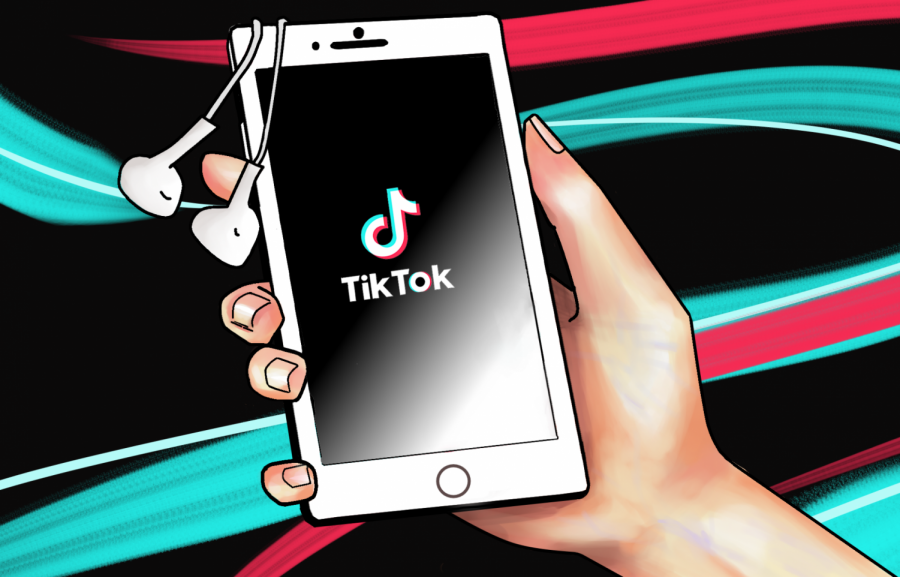Is TikTok bad for the music industry?
September 29, 2020
‘Renegade, renegade, renegade…” Before this song made its impact on the dance culture of 2019 with a simple, little-known app called TikTok, the music industry depended significantly on the radio to propel songs to popularity. Labels would fight over primetime spots to play their best shot at the next biggest hit until millions of people would slowly begin to recognize their tune.
New artists yet to be discovered by labels and PR teams and a blue check on Instagram turned to SoundCloud and Spotify’s Discover Weekly to hope that someone, somewhere would stumble upon their song and tell their friends to add it to their playlists. Established musicians would rule both streaming platforms and the 7AM radio, and budding singers could only hope that either their YouTube song cover channel or the famous CEO behind them in the coffee line would lead to their talent being discovered.
Enter TikTok.
Within two years, the app has captured the attention of 800 million active users as people watch TikToks between classes, while working out, and even on the toilet. Catering to those 800 million users are countless creators, including the same budding artists writing songs and creating remixes. What’s changed? TikTok is unlike YouTube because of one pivotal reason – the length of each video. Because of the fifteen to sixty second time range, users can scroll through hundreds of videos a day, filled with hundreds of different songs and creators. TikTok exposes its users to such a wide range of media that there’s a place for everyone, and among all those videos are the musicians of tomorrow. Based on just a few lyrics or beats, a new trend emerges, and before the creator knows it, their music is famous.
Take the example of Heather and Conan Gray, or Savage and Megan Thee Stallion, both previously unknown artists exploding onto the scene because of 15 seconds from their songs. Previously known artists also gained fame and popularity through TikTok, as shown by Dua Lipa’s song Don’t Start Now or Cardi B’s track WAP quickly rising up the Hot 100. In this regard, TikTok has had a phenomenal impact on the music industry. By allowing for the introduction of new, previously unknown artists at a quick pace, it has positioned itself as a cultural icon and allowed for musicians of all ages, appearances, music styles, and backgrounds to find their place in the music industry. It has effectively equalized the discovery of new artists.
However, the same thing that gives Tiktok a leg up over other social media platforms in promoting music may be its downfall. The app’s ability to transition through a number of trends in a week is making the very music it promotes extremely forgettable. While the music industry has always fought against the public’s short term memory loss when it comes to new songs, TikTok’s algorithm ebbs and flows specifically by erasing past trends and making room for new ones, something that the music industry was never prepared for. Success within the music industry depends on an artist and their music staying relevant for long periods of time, and TikTok prevents just that. This has led to new music from revered artists fading in light of a culture monopolized by something as arbitrary as an app algorithm. Critics argue that TikTok is setting the music industry back years as artists have to find new ways to chase relevancy and earn money via music sales.
The truth is, however, that TikTok does more good than harm. Before the app, young, unfound artists struggled for years to be found through YouTube or contacts within LA. The pace of both of these methods created an uncertainty in the world of music creators. However, through new streaming services and apps, led by TikTok, the world seems smaller for every content creator. TikTok may have made it difficult for stars to stay as stars, but it gives us a gift in return when raw musical talent is dispersed into the world with simple 60 second singing videos or instrumental ballads. For every Shawn Mendes of YouTube or Billie Eilish of SoundCloud, TikTok is giving us a million more. While current political happenings continue to shape TikTok’s destiny, we must remember its role in equalizing music and respect its impact on our culture today.




